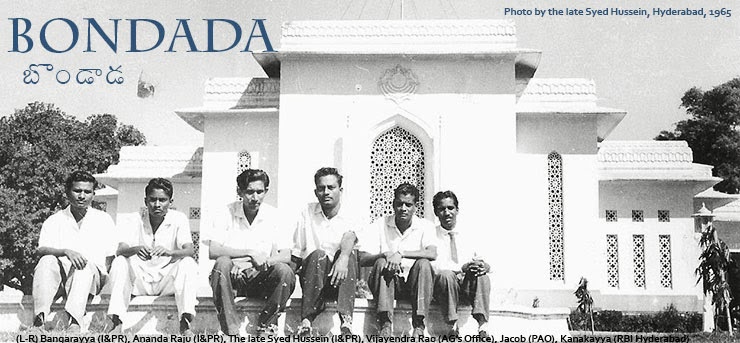His
friend who survived Sunday’s beating may be arrested once doctors say he is
fit. Four people have been arrested for the assault.
Tuesday, May 21st 2018 · 10:54 am
The attack occurred early on Sunday when Shiraj Khan (wrongly identified as Riyaz Khan in police records and news reports) and his friend Shakeel, 38, were walking back to their homes in Maihar town of Satna district from a neighbouring village. They were stopped by a group of men in Amgar village – around 15 km away from Maihar – who accused them of killing a cow. The men beat Khan and Shakeel with sticks and wooden planks, the police said.
Khan was a tailor, while Shakeel works in a bicycle repair shop in Maihar. Their families said that the two men had gone to a neighbouring village to recover money that one of Khan’s clients owed him. After the assault, some residents of Amgar village spotted the two injured men and called the police. They were both taken to hospital, where Khan succumbed to his injuries. Shakeel is recuperating in a hospital in Jabalpur. Khan’s is survived by his wife and four children – three daughters and a son, all aged between four and 14 years.
Shakeel will be taken into custody once he is declared fit by doctors, a senior police officer said.
Superintendent of Police (Satna) Rajesh Hingankar said that the police had recovered the carcass of a bull and two packages of meat at the scene of the crime.
Shiraj Khan’s younger brother Imran Khan, however, questioned this claim. For one, he asked how the police were certain, without a forensic test, that the meat was that of a bull. Besides, he demanded to know how the authorities had concluded that Shiraj Khan and Shakeel had killed the bull. He said that it was possible that his brother and Shakeel were passing by and were attacked by the accused who were looking out for Muslim men to target.
Superintendent of Police Hingankar said that a preliminary investigation suggested that Shiraj Khan and Shakeel had slaughtered the bull for meat, and that the police had eyewitness testimony to this effect.
Recent tensions
Maihar, the home town of legendary sarod player Allauddin Khan, is considered a holy place by Hindus because of the presence of the ancient Sharda Devi temple.
The town has a Muslim population of around 14,000, which is less than 10% of the total population, said Nafees Khan, a social worker in Maihar. “The town had no recent history of communal tensions until December 2017,” he said.
On December 8, a group of men who claimed allegiance to Hindutva groups disrupted a celebration in a Muslim colony on Milad-ul-Nabi, the birthday of the Prophet Mohammad. Hindutva groups had organised a march in Maihar that day, during which a Bajrang Dal leader was beaten up by some Muslim men. Ten people from both communities were arrested in connection with the violence.
Nafees Khan said that after that incident, Hindutva groups had made it a point to spread messages through WhatsApp groups and at public meetings claiming that Muslims in Satna were illegally slaughtering cows. The Bajrang Dal leader who was beaten up had headed several such meetings, he said.
Four arrested
Shiraj Khan and Shakeel were booked under provisions of the Madhya Pradesh Cow Slaughter Ban Act, 2004, and the Madhya Pradesh Agriculture Cattle Preservation Act, 1959, the police said. In 2012, Madhya Pradesh amended its rules against cow slaughter and raised the maximum punishment from three years imprisonment to seven years imprisonment, with a fine of Rs 5,000.
Four people – Pawan Singh Gond, Vijay Singh Gond, Phool Singh Gond and Narayan Singh Gond – who were identified by Shakeel, were booked for murder and attempt to murder. They have been arrested, the police said.
The case against Shiraj Khan and Shakeel was registered on the basis of a complaint by Pawan Singh Gond, who told the police that some other villagers had attacked the two men after finding them in the act of slaughtering a bull. They then informed Gond and the other accused.
Security strengthened
The cases were registered at Badera Police Station. Officials at this police station, who did not wish to be identified, first told Scroll.in about the sequence in which the cases were registered. Sub-Divisional Officer of Police (Maihar) Arvind Tiwari confirmed that the case related to cow slaughter was registered first, and the other case relating to murder and attempt to murder was registered later.
Security was strengthened in and around Maihar after the incident. Tiwari said that the peace-keeping committee in the region had helped keep the peace. “Both parties belong to different places,” he said. “There is no probability of personal enmity as they did not know each other.
The police said that they are yet to establish whether the arrested men are linked to Hindutva groups.
Support our journalism by subscribing to Scroll+ here. We welcome your comments at letters@scroll.in.
Source: scrollin


